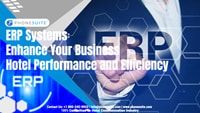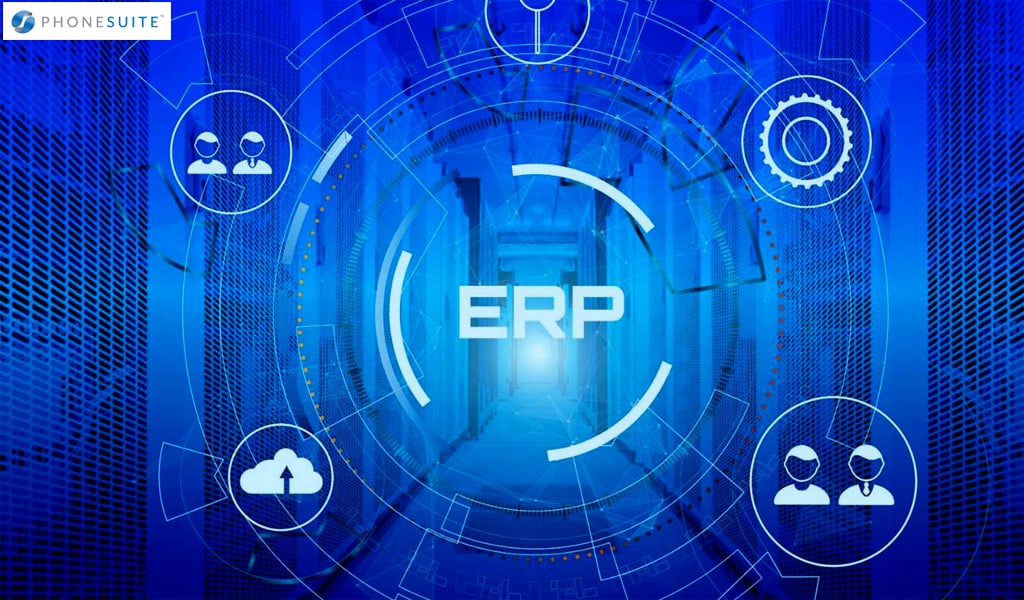
Understand What an ERP System Is and Its Benefits
Enterprise Resource Planning (ERP) is a software solution designed to streamline and optimize business processes. It provides a centralized platform for companies to manage their entire operations, from inventory and customer management to financials and reporting. ERP systems have gained popularity over the years thanks to their numerous benefits, including improved efficiency, increased productivity, and better visibility into company performance.
With an ERP system, companies can automate many of their core processes, which leads to reduced costs, fewer errors, and faster processing times. ERP software makes it easy for businesses to capture and analyze data, providing valuable insights that can help drive strategic decision-making. Overall, an ERP system is a powerful tool that can help companies achieve their goals, improve their bottom line, and stay ahead of the competition.
Look at Different Types of ERP Systems
When it comes to enterprise resource planning (ERP) systems, there are numerous types available to suit the needs of various organizations. From cloud-based solutions to open-source systems, each option has its own unique benefits and drawbacks. It’s important to consider factors such as scalability, ease of use, and integration capabilities when selecting an ERP system.
While some businesses may prefer a comprehensive solution that includes everything from inventory management to accounting, others may opt for a more specialized system that focuses solely on one aspect of their operations. Regardless of which ERP system you choose, make sure it aligns with your business goals and can accommodate growth as your company expands.
There are several different types of ERP systems available in the market, each designed to cater to specific industries or business needs.
Here are some of the most common types of ERP systems:
-
On-premise ERP:
This type of On- Premise ERP system is installed on the organization’s servers and managed by its IT staff. On-premise ERP systems offer a high degree of customization and control, but can be expensive to maintain and require significant hardware and software resources.
-
Cloud ERP:
Cloud ERP systems are hosted on remote servers and accessed through the internet. They offer a lower upfront cost, greater scalability, and easier maintenance, but may have limited customization options and potential data security concerns.
-
Industry-specific ERP:
Some ERP systems are designed specifically for certain industries, such as manufacturing, healthcare, or retail. These systems offer specialized functionality and features tailored to the specific needs of the industry, but may be less flexible and customizable than general-purpose ERP systems.
-
Open-source ERP:
Open-source ERP systems are free to use and can be customized to meet the specific needs of an organization. However, they may require significant IT resources to implement and maintain.
-
Small business ERP:
Small business ERP systems are designed for companies with fewer employees and simpler business processes. They typically offer basic functionality for managing finances, inventory, and customer relationships, but may not have the same level of sophistication as larger, more complex ERP systems.
-
Mobile ERP: Mobile
Mobile ERP systems are designed to be accessed through mobile devices, such as smartphones or tablets. They offer employees greater flexibility and mobility, but may have limited functionality compared to desktop-based ERP systems.
Assess Your Business Needs Before Deciding on an ERP System
As a business owner, it’s crucial to stay ahead of the game and improve your operational efficiency. Adopting an ERP system can help streamline and automate a variety of workflows within your company. However, before jumping on the ERP bandwagon, it’s important to assess your business needs and requirements first.
Ask yourself questions such as what problems you’re experiencing, what changes you want to see in your operations, and what goals you want to achieve. Having a clear understanding of your business needs will enable you to make an informed decision on the type of ERP system that best suits your company. It’s better to invest time in assessing your needs now, rather than regretting your decision in the future when you realize the system you chose doesn’t meet your requirements.
Identify Potential Challenges Implementing an ERP System
The decision to implement an ERP system can bring many benefits to a business, from improved productivity to streamlined operations. However, the journey towards a successful implementation can come with a variety of challenges. One potential obstacle could be resistance from employees who may be hesitant to adapt to new processes or software.
Another challenge could be the cost and resources required to properly train and maintain the system. It is also important to consider any potential compatibility issues with existing software and the need for customization to fit specific business needs. Identifying and addressing these challenges beforehand can help ensure a successful implementation and long-term success.
Investigate How to Make the Implementation Process Easier
When it comes to implementing a new system or process, it can often feel overwhelming, daunting, and downright frustrating. Implementing an ERP system can be a complex and challenging process, but there are several steps that organizations can take to make the implementation process easier and more successful.
Here are some key tips for implementing an ERP system:
Define clear goals and objectives:
Before embarking on an ERP implementation, it’s important to define clear goals and objectives for the project. This will help ensure that everyone involved is working towards the same outcomes and will help guide decisions throughout the implementation process.
Involve stakeholders from across the organization:
ERP implementations affect many different parts of an organization, so it’s important to involve stakeholders from across the company in the planning and implementation process. This can help ensure that everyone’s needs and concerns are addressed, and that the system is designed to meet the needs of the entire organization.
Conduct a thorough analysis of current processes:
Before implementing an ERP system, it’s important to conduct a thorough analysis of current business processes to identify areas for improvement and potential roadblocks to implementation. This can help ensure that the system is designed to address the specific needs of the organization and can help minimize disruptions during the implementation process.
Develop a detailed implementation plan:
A detailed implementation plan is essential for a successful ERP implementation. The plan should include timelines, milestones, and responsibilities for each phase of the project, as well as contingency plans for any issues or delays that may arise.
Provide adequate training and support:
Adequate training and support for employees is critical for a successful ERP implementation. This can help ensure that employees are comfortable using the new system and can help minimize disruptions to day-to-day operations.
Monitor and evaluate progress:
Once the ERP system is implemented, it’s important to monitor and evaluate its performance to ensure that it is meeting the organization’s goals and objectives. This can help identify areas for improvement and ensure that the system continues to meet the needs of the organization over time.
By following these best practices, organizations can help ensure a smoother and more successful implementation of an ERP system, and minimize disruptions to day-to-day operations.
Learn About Integrations, Security, and Automation Capabilities of the System
That’s where learning about the integrations, security, and automation capabilities of the system becomes crucial. Imagine a system that can take care of tasks like data entry, invoicing, and customer management all in one place, while also ensuring that your sensitive data is protected from cyber threats. With the right integrations, you can also connect various systems in your organization, saving time and increasing efficiency.
It’s time to empower your business with the necessary knowledge to make informed decisions about your system’s capabilities.
Taking advantage of PhoneSuite’s products and services is a smart move that can bring to life new possibilities in hospitality. Imagine the seamless and integrated communication experience, the increased efficiency and cost savings, and ultimately, the extra time to focus on what truly matters – your guests. With PhoneSuite’s wide range of products and services designed specifically for the hospitality market, you can upgrade your amenities and provide greater customer service at an affordable price. Now it’s up to you to step up into this connected, automated world and explore how our solutions fit into your business!




